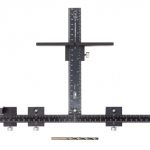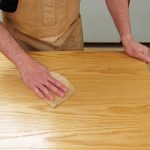We may receive a commission when you use our affiliate links. However, this does not impact our recommendations.
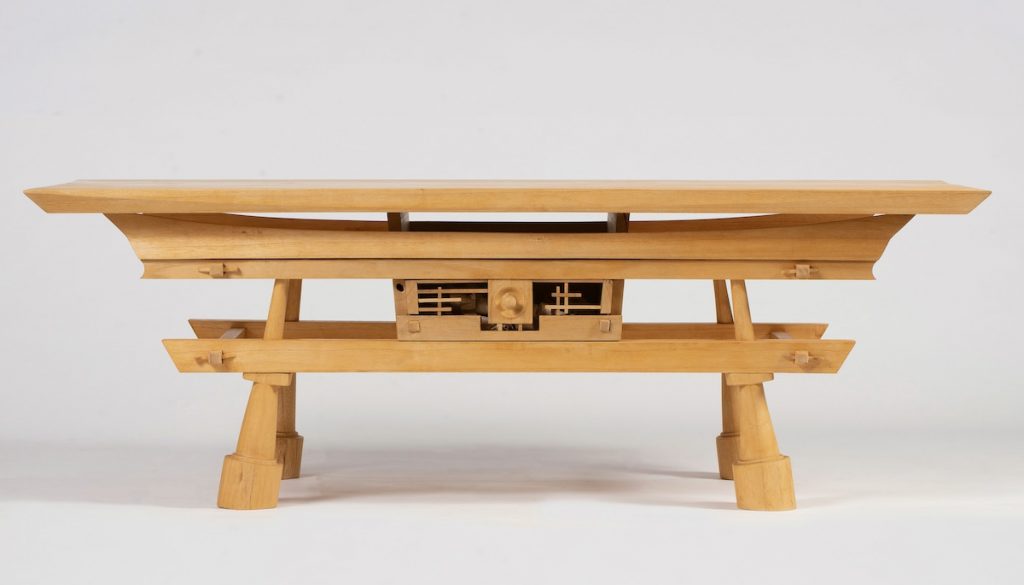
Torii Table by Dan Dragon. Photo by Elad Brami
Under a makeshift awning in a quiet valley near Jerusalem, Israel, Dan Dragon, a multi-faceted maker, has just finished one of the most interesting pieces that I have seen to date. It’s a sophisticated knockdown table that draws its esthetic and joinery vocabulary from the rich Japanese building traditions. Dan based his design on the Torii gates and incorporated in it many of the hallmarks that we associate with traditional eastern building techniques. He could not have done this so successfully if not for the very compelling growth and development journey that he had embarked upon, a journey that began in Israel, took him to the United States and Japan, and then back to Israel. I am dedicating this entry to Dan’s journey and in the next installment, I will show in detail how he built his remarkable piece.
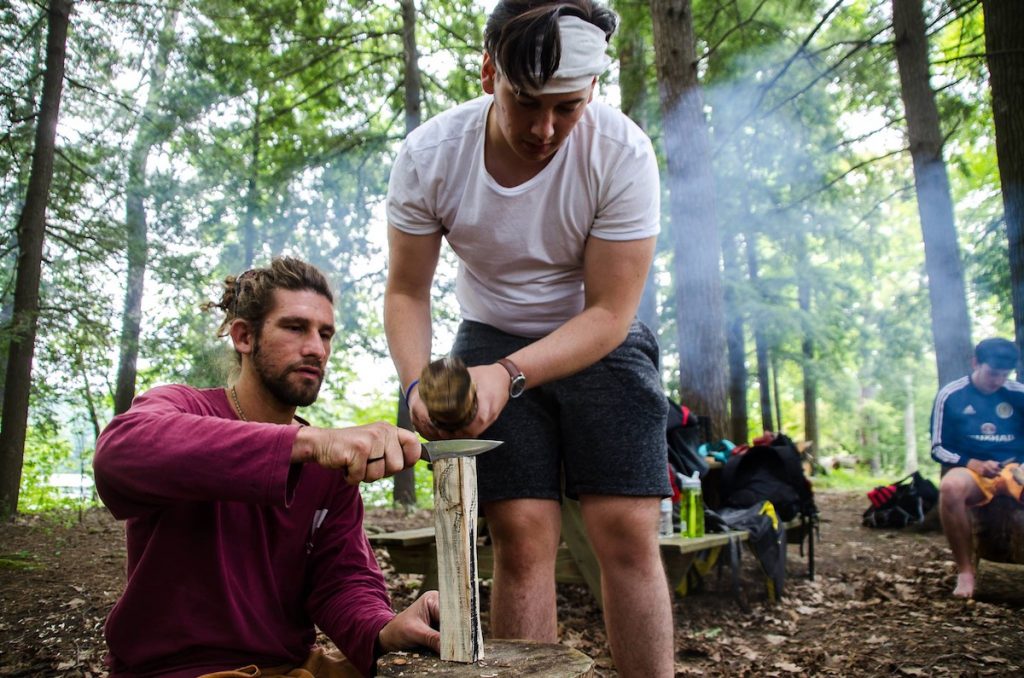
Dan (left) during outdoor activity in the summer camp.
Dan’s interest in woodworking and carpentry was seeded in Israel, budded in the USA, matured in Japan, and after making a full circle is now bearing fruits back in Israel.
He was born in Israel and grew up in Kibbutz Mishmar HaNegev, an agriculture commune in the Negev desert. Those years in the Kibutz were blissful, filled with freedom and learning opportunities all around. As a member of a community that was predicated on self-reliance, he gleefully learned how to weld, drive a tractor, take care of farm animals, and much more. It’s there, he believes, was the place and time where his interest in making stuff was born.
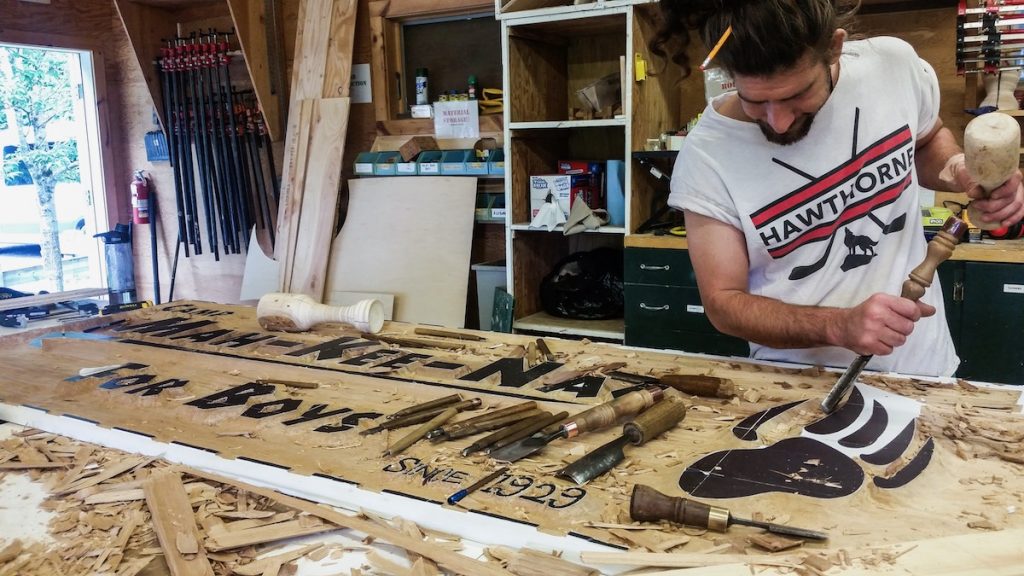
Dan while carving the summer camp sign.
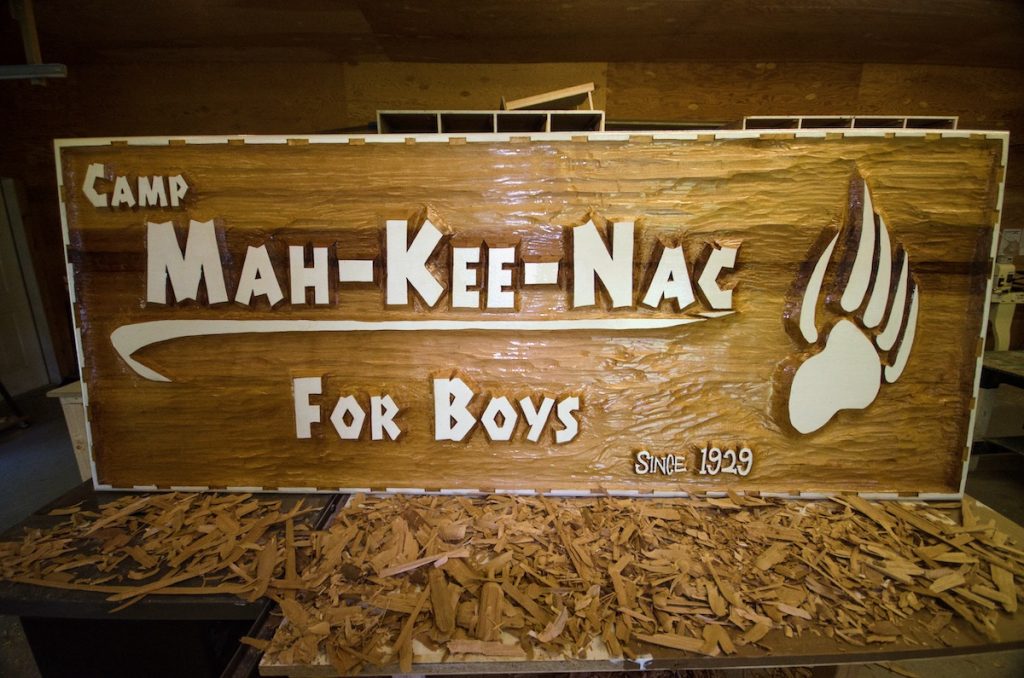
Upon completing his military service (it is compulsory in Israel) he decided that he wanted to see the world, so for a few consecutive summers, he travels to the United States to work as a counselor in a summer camp in Westchester County, New York. While there he was guiding the campers in outdoor activities. But as a person who has always been interested in hands-on and DIY, he struck a friendship with Justin Kuhn who was the camp’s woodworking counselor. By frequenting the camp’s shop on his off time he discovered woodworking, and gradually picked up many of the necessary skills that inform his work today. Dan’s friendship/mentorship with Justin brought him to visit Jusin’t shop in North Carolina and to work with him on a few interesting projects.
During the falls and winters, he lived in Jerusalem, and there, together with a few other hands-on hungry friends, established the first community workshop in the country. This group of would-be makers convinced the Jerusalem municipality to permit them to use a vacant neighborhood bomb shelter and turn it into a very modest – but fun – potluck-style woodshop. One guy brought some old tools, another person donated the wood and a third was sharing their knowledge. the place was open to all and the fees were just a few dollars a month and intended only to cover the insurance costs. This model of a not-for-profit woodworking community shop has now become very popular in Israel and many municipalities support it.
After falling in love with woodworking and giving it a try both in the USA and in Israel, Dan’s hunger for knowledge grew stronger so he found an exchange program in Japan – a country that left a great and lasting impression on him. During his stint in the land of the rising sun, he was introduced to the country’s intricate timber-framing building traditions which have engulfed his imagination and design approach ever since then.
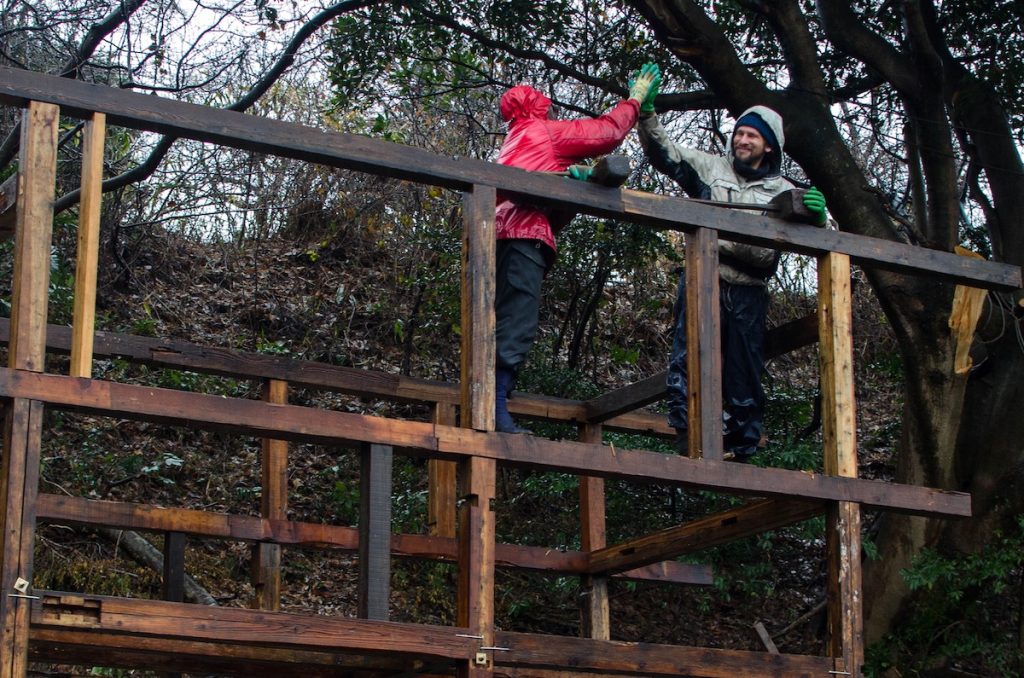
Dan and his mentor Savo Temfujiwara while dismantling a Japanese post and beam building. The harvested parts were then adjusted and tweaked before being repurposed into a new structure.
In Japan, he worked under master carpenter Savo Temfujiwara, whose specialty was disassembling, reconfiguring, and then reassembling old timber-frame structures into new structures at new locations. Like in so many other industrial nations, Japan has witnessed a wave of inner migration of young people from the countryside to the big cities. As a result, Japan has many vacant houses in the country, which if left unattended, are subjected to a slow process of degradation. During Dan’s stint in Japan, he and Master carpenter Savo carefully labeled structures’ parts, and then took the post and beam elements apart. After this, they would change and tailer-fit the parts into their new dimensions and modules and finally, brought them to their designated new site to be reassembled. This process of repurposing the old into the new left a great impression on Dan.
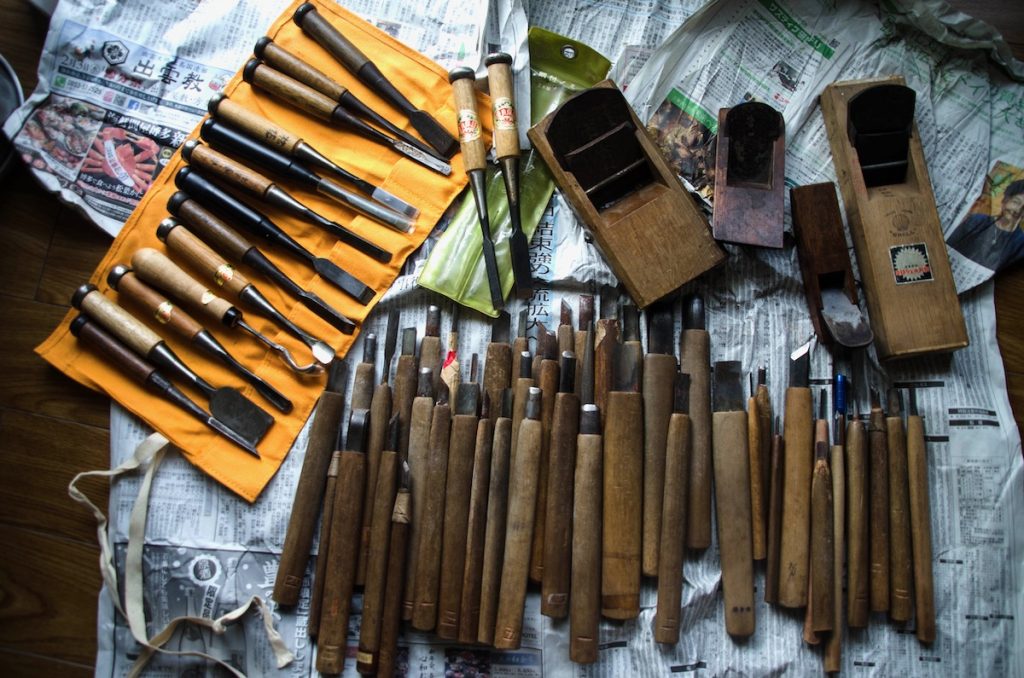
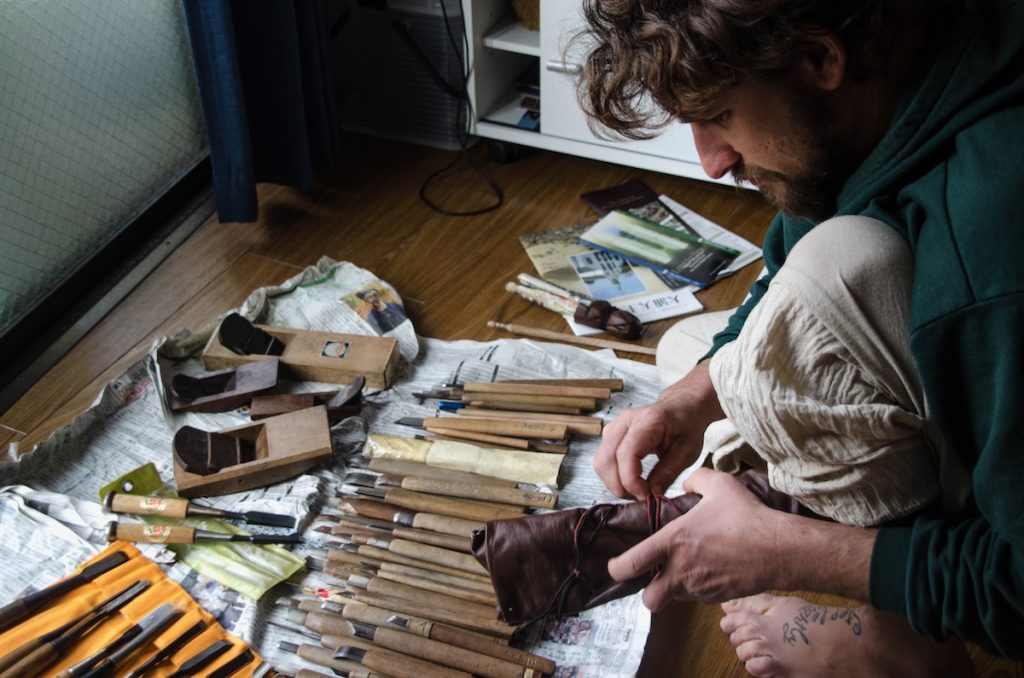
Dan acquire many of his hand tools during his visit to Japan. The majority of his tools are vintage second-hand tools.
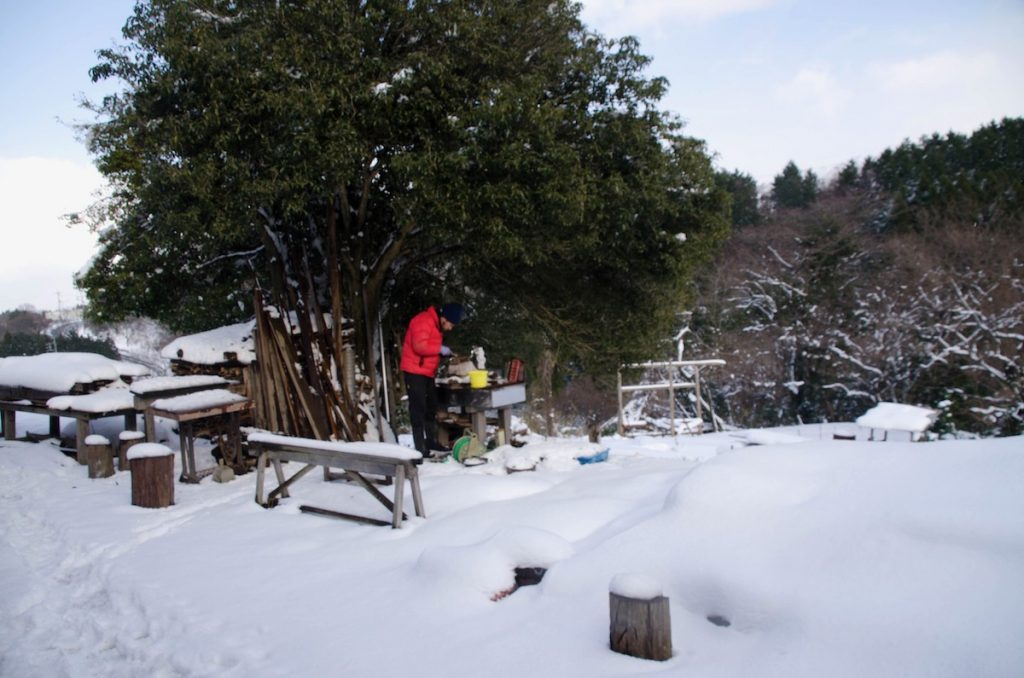
Dan while sharpening outdoors.
In 2011 Dan enrolled in the Israeli government professional training program in woodworking where he studied under two teachers. The program was very comprehensive and included training in both hand tools and machine work. Dan mentioned that he had to take a plethora of subjects, from design to technical drawings and even upholstery. His education took place off-campus too, as his teachers organized for the group field trips to visit a wood mill and a few woodworkers’ shops.
Upon graduation, he began practical training in various shops. The first one was a third-generation traditional woodturning shop in Jaffa. After this, he was immersed in a high-end industrial shop with all the bells and whistles of CNC manufacturing and such. Then back into the comfort zone of a two-person small studio where really artistic and interesting projects were done. His fourth apprenticeship was with a carpenter who built post and beam pergolas, and now he is working in the furniture conservation studio of Ronen Dor.
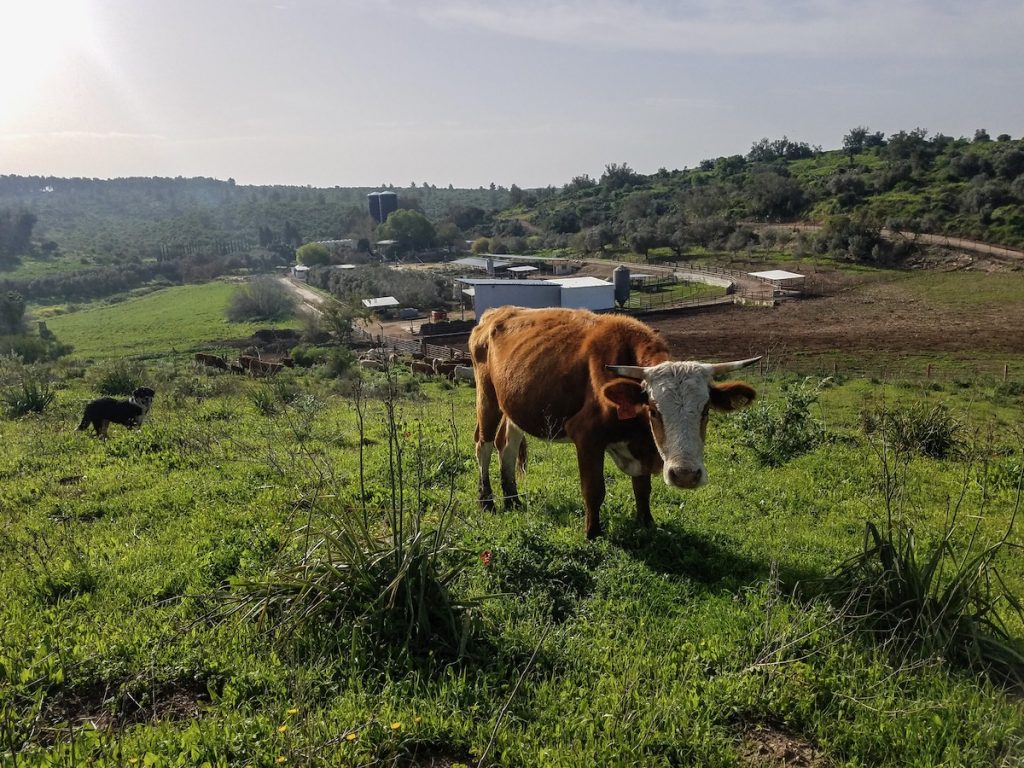
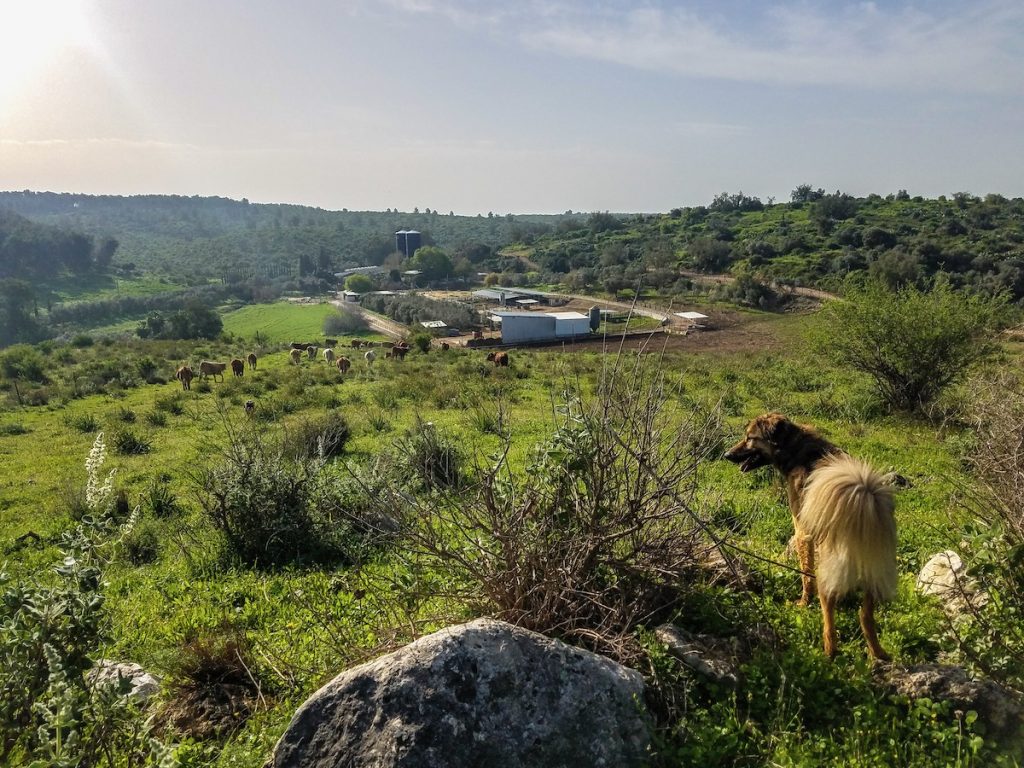
Dan lives with his wife, his dog and cat, chickens, and their vegetable garden in a small family-run cattle farm near the Elah valley on the foothills of the Judean Mountains west of Jerusalem. He barters residency in exchange for helping the farmer with around the farm chores that Dan finds time to do during the weekend. He loves living there, and after seeing the pastoral pictures that he shared with me I think I know why.
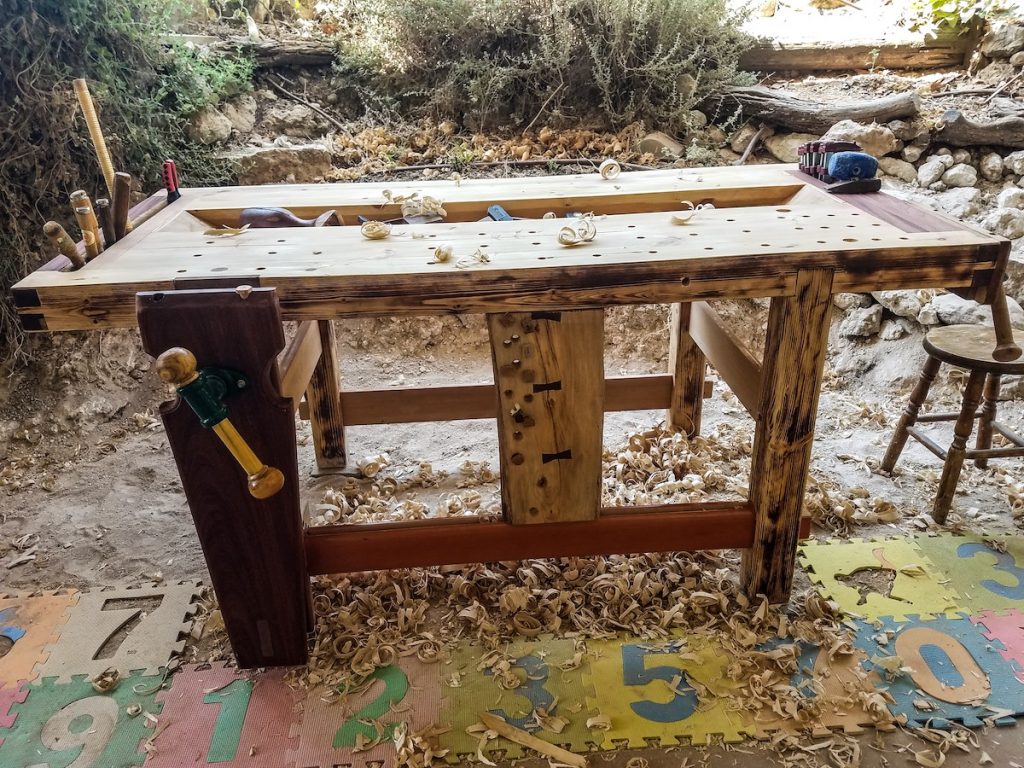
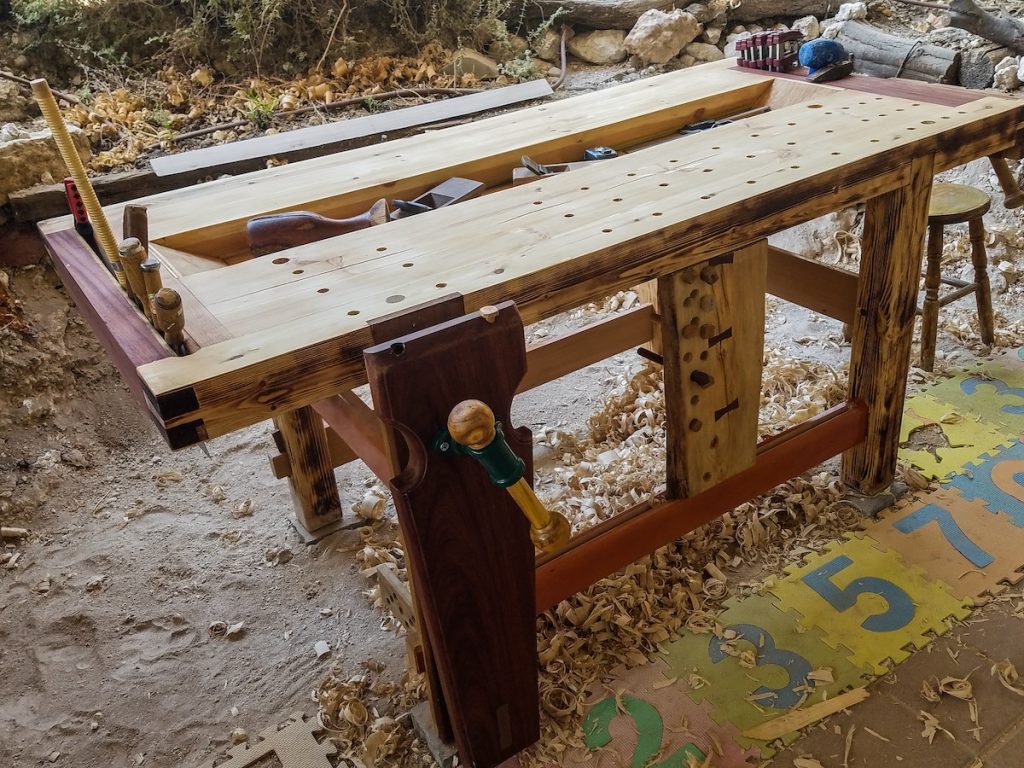
Outside his home, he set up a wide awning, and underneath it, he established his modest work area that includes a few tools, and recently the cornerstone of his creative life – a Roubo bench à la Dan.
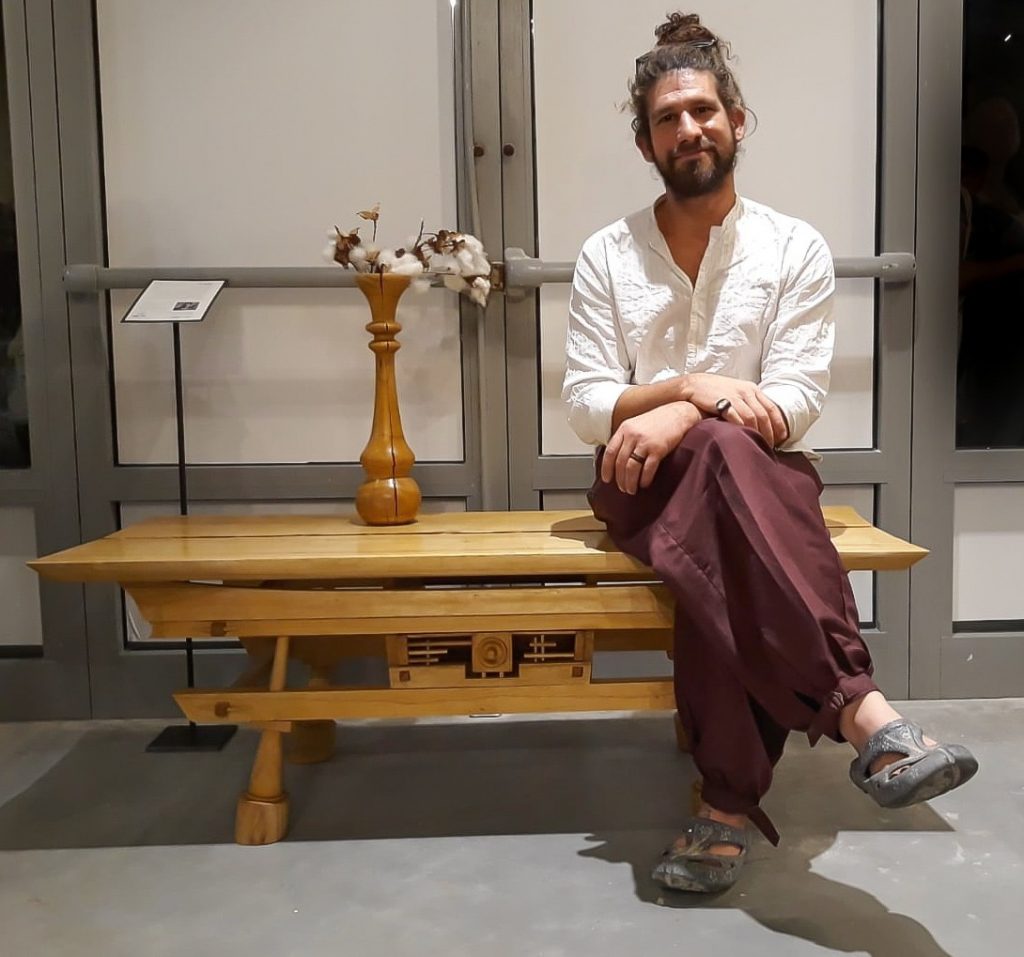
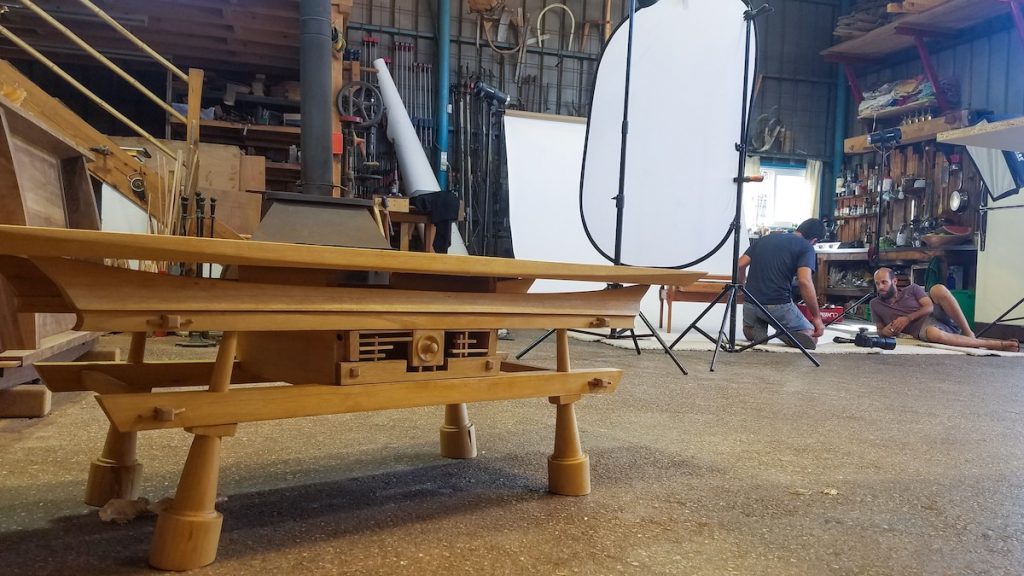
Next time – Building the Torii table, so stay tuned.
Here are some supplies and tools we find essential in our everyday work around the shop. We may receive a commission from sales referred by our links; however, we have carefully selected these products for their usefulness and quality.








